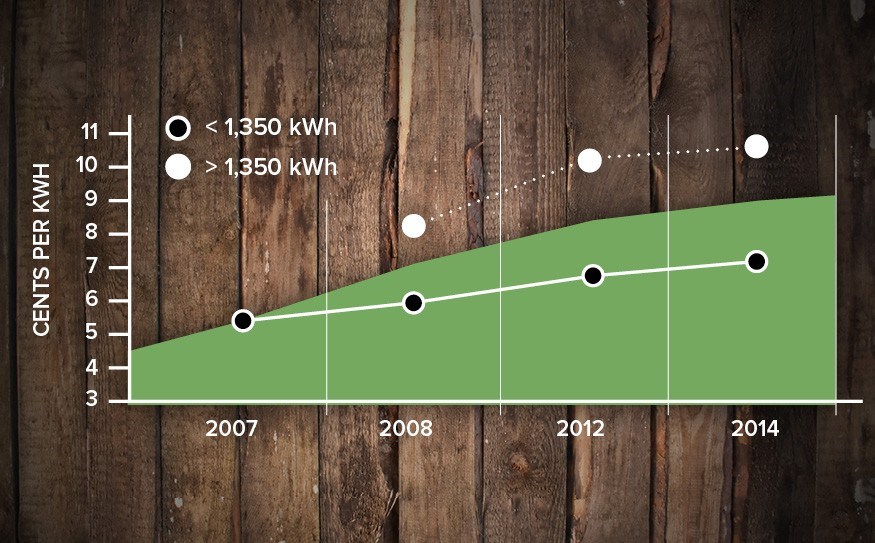The cost of electricity is rising in B.C. In 2007, the based residential rate for electricity was just over 5.4 cents per kilowatt-hour (kWh).
Then in 2008 BC Hydro announced a plan to switch to two-step billing that would increase the rate for the first 1,350 kWh of electricity consumed to 5.98 cents per kWh and everything above that to 8.27 cents.
By April 2013 those prices had crept up to 6.9 cents per kWh and 10.34 cents per kWh respectively — part of an overall 17 per cent increase approved in 2012. Rates will increase almost four per cent again in 2014, and are expected to keep rising after that.
The two-step system is particularly challenging for places like Whistler where temperatures are a lot colder and winters last longer than in more temperate areas.
The result is that people in mountain towns have seen a disproportionate increase in their bills over the last five years.
Long term, the cost of power is expected to rise even further as the province grows and aging infrastructure must be updated. According to numbers compiled by the Resort Municipality of Whistler in partnership with BC Hydro, the average home in the resort in 2011 used about 26,500 kWh per year. BC Hydro’s annual two-step system would result in a bill of roughly $1,004.40 for the first 16,200 kWh (12 months times 1,350 kWh, assuming a property reaches that threshold every month), while the bill for the next 10,300 kWh is another $1,065.02 for a total of $2,069.42 annually.
That’s a significantly higher bill than just five years ago. A similar amount of electricity at 2007 rates was about $630 cheaper. And if the province didn’t bring in a two-step system and kept the base residential rate to 6.9 cents per kWh then an average annual electrical bill would be around $340 less.
If the average electricity price ever reached 12 cents per kWh, the amount currently charged by IPPs, then an average annual BC Hydro bill would grow to over $3,000 per year, $1,000 more that the current average.
This is where the incentive to embrace green housing technologies comes in.
If you could improve your overall energy efficiency by 25 per cent you’ll save around $260 a year at today’s rates. Over a decade that translates to over $2,600, and over the 25 years most of us take to pay off a mortgage you’re looking at more than $6,000 in savings.
That’s more than enough potential savings to justify an investment in making your home more energy efficient — and those numbers don’t include any future increases to the cost of power. As power rates increase, so will the potential savings.




